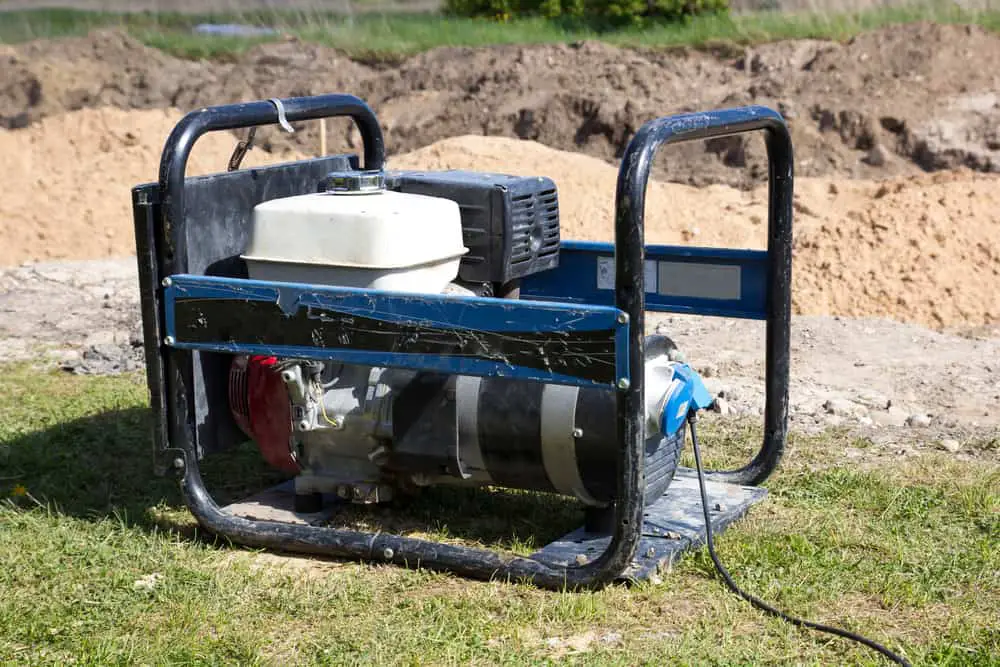When power outages occur, generators can be a lifesaver for keeping appliances running.
However, many homeowners wonder if using a generator can harm their appliances.
So, Are Generators Hard On Appliances?
The short answer is yes. However, by following proper usage guidelines and maintaining your generator, you can minimize the risk of damage to your appliances.
See Also: Can You Use A Generator To Power A Mobile Home?
What Are The Impacts Of Generators On Appliances?
1. Power Output
Generators can provide a source of electricity for appliances during power outages or in remote locations.
This is particularly useful in firms that cannot entertain even a single hour without power.
Hospitals need the power to run critical medical equipment and machines using electricity.
2. Voltage Regulation
Some generators have built-in voltage regulators to ensure the power output is consistent and stable for connected appliances.
Such generators work more like electric surges which put voltage output under control. In turn, they secure your devices from damage.
3. Noise Level
Generators can be loud, which can be a disturbance to people and appliances in the vicinity. Noise can be a great nuisance in certain places where quietness is essential.
And since most generators either use diesel or gasoline, there’s no denying that they produce immense noise during operation.
4. Fuel Consumption
Even though generators are handy when there is an outage, they are equally expensive to run, given the skyrocketing cost of gas.
Generators that use gasoline or diesel fuel can consume significantly, affecting the cost of running appliances.
5. Emissions
Generators that use gasoline or diesel fuel can produce emissions affecting air quality and the environment.
6. Maintenance
Generators require regular maintenance to ensure that they operate safely and efficiently, which can affect the cost of running appliances.
You will need to keep checking the engine parts and every part of the generator to ensure it works in good condition. Such inspections are often executed at a cost.
Seven Ways To Use Generators Safely With Appliances
Generators can be dangerous if not used properly.
You, therefore, need to master safety tips to ensure that there are minimum risks posed on your appliances and even the safety of the occupants of the rooms.
Here are seven ways to use generators safely with appliances:
1. Read The Manual
Before using a generator, it is essential to read the manual and understand how to operate the device properly.
This will ensure that you are aware of any safety precautions or guidelines for using the generator.
2. Use The Correct Type Of Generator
Different appliances require different types of generators.
For example, a portable generator may not be powerful enough to run a large air conditioner.
Also, use the appropriate generator for the appliances you need to power.
3. Keep The Generator Outside
Generators should always be used outside, away from doors and windows.
The idea is to prevent carbon monoxide (CO) from building up inside your home, which can be deadly.
4. Use A Transfer Switch
A transfer switch allows you to safely and efficiently connect your generator to your home’s electrical system.
You want to ensure that power is directed only to the appliances you want to use, not the entire house.
5. Use Heavy-duty Extension Cords
Make sure to utilize heavy-duty extension cords that are rated for outdoor use, if the need arises.
This will prevent overheating and potential fire hazards. Invest in good extension chords that are safe and durable.
6. Do Not Overload The Generator
Overloading a generator can cause it to overheat and catch fire.
Make sure to connect the necessary appliances and don’t exceed the generator’s maximum power output.
Different types of generators have different amounts of power output.
7. Regularly Maintain Your Generator
Regular maintenance will ensure that your generator is running safely and efficiently.
Always follow the manufacturer’s recommendations for oil and filter changes, and have a professional inspect your generator at least once a year.
Five Ways To Minimize The Impact Of Generators On Appliances
As we have mentioned, there is no denying that running a generator can have an impact on your appliances.
To minimize this impact, there are several things you can do.
1. Use A Surge Protector
A surge protector can protect your appliances from power surges when the generator is turned on or off.
You want to ensure that sudden power spikes won’t damage your appliances.
2. Run The Generator At Full Power
Running the generator at full power will help ensure that the power supplied to your appliances is consistent and stable.
3. Use A Generator With A Stabilizer
A stabilizer is a device that helps to regulate the power being supplied by the generator.
It ensures that the power supplied to your appliances is stable and consistent.
4. Use The Generator Only When Necessary
Try to use the generator only when it is indispensable.
It reduces the time your appliances are exposed to the potential risks of generator power.
5. Maintain Your Generator Regularly
You must regularly maintain your generator to ensure it is running at its best.
This will reduce the risk of power fluctuations and other issues damaging your appliances.
Conclusion
Generators can be a great way to provide power when the need arises.
However, running a generator can also have an impact on your appliances.
By following the tips we mentioned in this article, you can minimize the effect of generators on your appliances and ensure they are protected from damage.

